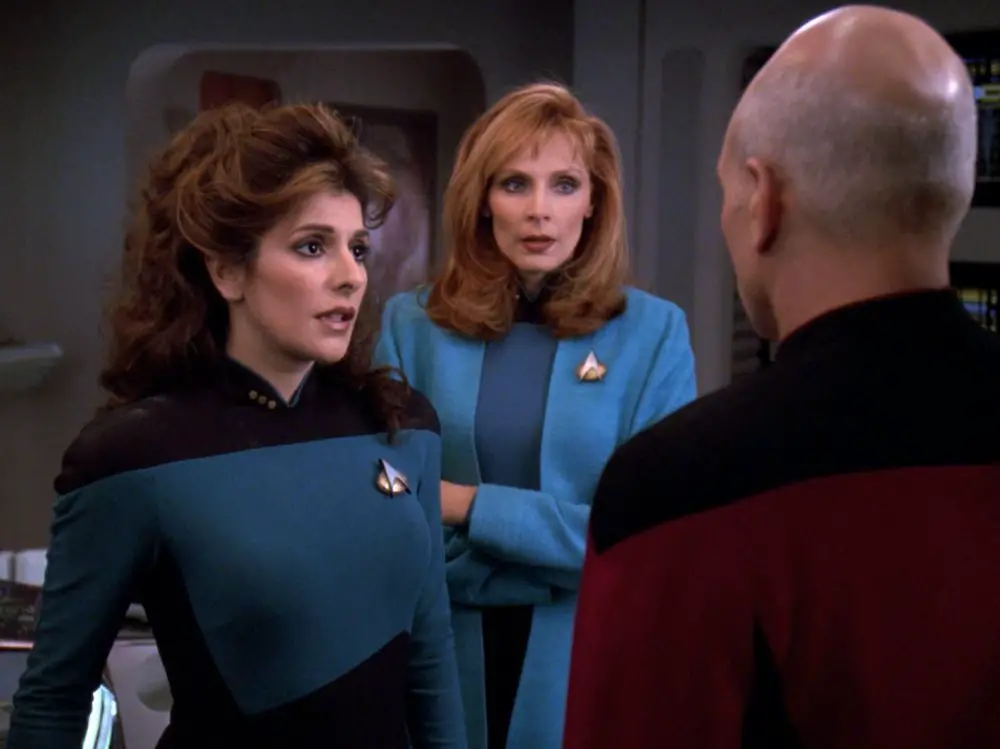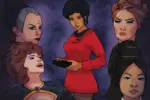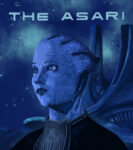The “Star Trek” fandom is one of the largest in existence, and the amount of material — both text and film — makes exploring the franchise seem like an insurmountable task. Most fans agree that the best place to start is with Roddenberry’s “Original Series.” However, many viewers find the treatment of women, along with the poor special effects, dissatisfying, and they drop the series after only a few episodes. But new movies and television series have tried to incorporate better special effects, intense fight scenes and everything else that modern viewers seem to enjoy. For this reason, newer audiences naturally gravitate to the latest content, but then lose interest in the franchise after getting bored of the older shows.
Unfortunately, the newer shows seem to upset longtime fans because the pacing and subject matter lacks the socio-political discourse and extensive worldbuilding that they have come to enjoy. With such a long history behind it, there is a much different atmosphere between fans who grew up watching the show, those who were intrigued because of the multiple layers of plot and philosophy and those who only like the new movies because they think Chris Pine is hot.
This difference in viewing expectations leaves one giant question: How can “Stark Trek” bring in new viewers and keep the fandom alive?
Many of the older fans are angry that the extent of the newest show was a glorified, action-packed nostalgia trip that added little to the overarching series, which means that many newer fans don’t get to see the level of societal discussion that goes on within the “Star Trek” community. Understanding the history and purpose of “Star Trek” is a lengthy process to say the least, but it is necessary to truly appreciate the show.
Moreover, this can be incredibly difficult for someone who has never watched “Star Trek” or 1960s television. On its surface, “Star Trek: Original Series” has problems with the horrible special effects and its portrayal of women as submissive characters. Even so, both of these issues reflect the reality of 1960s television.
In regard to the special effects and storytelling, “Star Trek” is often compared to “Star Wars” because of the similarities between the two worlds. This is unfair because the two shows need to be watched for different reasons. If they are being compared only for the special effects, then “Star Wars” will win every time. “Star Trek” shouldn’t be watched for the special effects. The true value is in the philosophical debates, the social commentary, the moral ambiguity and the exploration of the human spirit. Moreover, anyone who argues “Star Wars” is better than “Star Trek” because the characters talk too much and the effects are bad has clearly missed the point.
Likewise, while the special effects are nice in the “Star Trek” reboots, the older shows were not as concerned about the visuals. Instead, the social commentary, philosophical debates and exploration of building a perfect Earth are so complex that some professors have decided to teach sociology courses through the medium of “Star Trek.” In its first series and in every reboot series, there have been new social concepts to explore.
“Star Trek: The Next Generation” deals with individualism and collectivism. “Star Trek: Voyager” develops feminist ideals. “Star Trek: Deep Space Nine” discusses postcolonialism. “Star Trek: Enterprise” develops the need to respect another species’ way of life.
These all follow the traditions that the “Original Series” set in motion. Every week, the crew encounters a new species or phenomenon, which is used as an analogy to some earthly social problem. The crew finds the best possible solution for these issues and then they follow up with some commentary about their experiences.
Beyond its academic appeal, “Star Trek” has influenced American culture in many ways, with the representation of Black people being among the greater ones.
“Star Trek” is a place of infinite diversity and infinite perfection of the human race, but the culture of the moment is still on full display in the “Original Series.” The incredibly short skirts, submissive women and Kirk’s need for sexual conquest are all results of the time and should be considered part of a greater whole. What many people do not realize is that, despite its dated shortcomings, the “Original Series” was influential in the 1960s. Nichelle Nichols — who played Lieutenant Uhura — was among the first Black women to have a television role where she was not portrayed as a maid or servant.
Nichols recounted a conversation she had with Dr. Martin Luther King about her “Star Trek” role. She stated, “Dr. Martin Luther King, quite some time after I’d first met him, approached me and said something along the lines of ‘Nichelle, whether you like it or not, you have become a symbol. If you leave, they can replace you with a blonde-haired white girl, and it will be like you were never there. What you’ve accomplished, for all of us, will only be real if you stay.’”
The presence of Nichols in her role was one of the most defining traits of “Star Trek,” and it had lasting effects on the show and American society as a whole. She even inspired Whoopi Goldberg to become an actress and join “Star Trek: The Next Generation.”
Understanding the power this show has had in shaping American culture over the past 60 to 70 years is a crucial part of why “Star Trek,” including all the reboots, is rightfully viewed as a timeless show. Each series fills in another part of the universe’s lore while simultaneously discussing the current state of American society.
So how do show writers appease both audiences while keeping with these traditions, and how can the community foster an environment where the new audience feels welcome?
Many longtime fans want the new material to focus on diverse characters with wildly different personalities and goals as they work together to explore the galaxy. These same fans will expect the show to stay within the universe that the many rebooted series have set up, and they will hope to see some truth in the way their current cultural climate is advancing. Moreover, there is a level of optimism in “Star Trek” that gives hope for a better tomorrow to an increasingly cynical audience.
New fans can and will become interested in the show when it is released and advertised. The only job of the longtime fans is to remember their love for “Star Trek,” not because they want to be know-it-all gatekeepers, but rather because it provides intellectually stimulating commentary about American culture, and because it is a hopeful story about the human race continuing to evolve.
As the writers continue to produce exciting stories like “Star Trek: Picard” and work on reclaiming “Star Trek: Discovery,” it is important that the community continues to love and accept the new fans of the show and help guide their understanding of the franchise’s influence.
After all, there can be no perfect future if no one is there to imagine it.

















